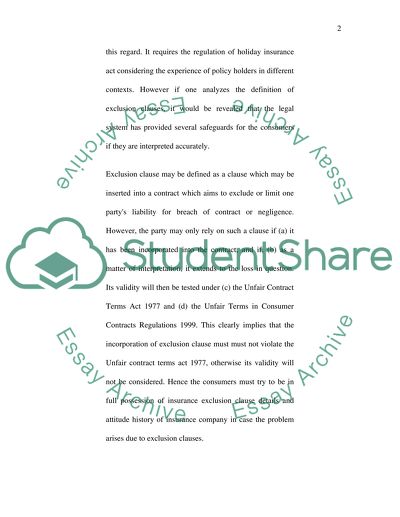Cite this document
(“In the light of the decision in Bankers Insurance Co Ldt v South Essay”, n.d.)
Retrieved from https://studentshare.org/miscellaneous/1538429-in-the-light-of-the-decision-in-bankers-insurance-co-ldt-v-south-2003-ewhc-380-consider-to-what-extent-exclusion-clauses-in-hooliday-insurance-contracts-shou
Retrieved from https://studentshare.org/miscellaneous/1538429-in-the-light-of-the-decision-in-bankers-insurance-co-ldt-v-south-2003-ewhc-380-consider-to-what-extent-exclusion-clauses-in-hooliday-insurance-contracts-shou
(In the Light of the Decision in Bankers Insurance Co Ldt V South Essay)
https://studentshare.org/miscellaneous/1538429-in-the-light-of-the-decision-in-bankers-insurance-co-ldt-v-south-2003-ewhc-380-consider-to-what-extent-exclusion-clauses-in-hooliday-insurance-contracts-shou.
https://studentshare.org/miscellaneous/1538429-in-the-light-of-the-decision-in-bankers-insurance-co-ldt-v-south-2003-ewhc-380-consider-to-what-extent-exclusion-clauses-in-hooliday-insurance-contracts-shou.
“In the Light of the Decision in Bankers Insurance Co Ldt V South Essay”, n.d. https://studentshare.org/miscellaneous/1538429-in-the-light-of-the-decision-in-bankers-insurance-co-ldt-v-south-2003-ewhc-380-consider-to-what-extent-exclusion-clauses-in-hooliday-insurance-contracts-shou.


